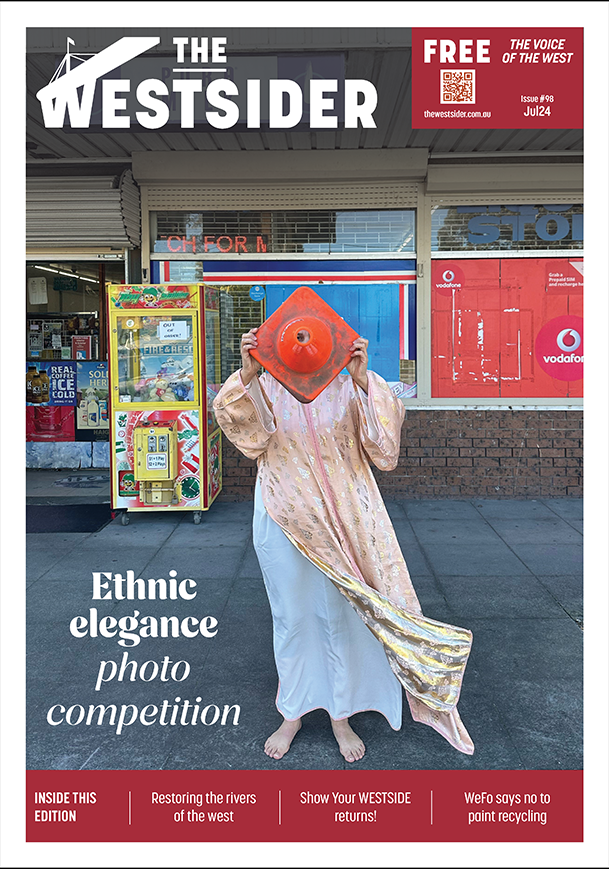By Gerrit Bos in conversation with Athena Karamarkos
Westsider contributor and mature age student, Athena Karamarkos recently completed her Graduate Certificate in Youth and Adolescent mental health. Author and educator, Gerrit Bos interviewed her to see if she could share something of her experience to assist present and future online students.
How did you find studying online?
There are a lot of benefits to studying online. My course focussed upon children’s and adolescent’s mental health, and our teachers and facilitators were seasoned practitioners from all around the country, who touched base with us regularly to check how our studies were progressing. My classmates, who themselves worked in diverse industries, also enriched my experience.
The flexibility of online learning meant that I could fit my study around my family and work commitments. That said, relying solely on the internet for your learning makes you vulnerable when technological issues arise, and they did inevitably arise and were time consuming to rectify. Then there’s something to be said about having a discussion with people in a room versus seeing everyone’s faces on little thumbnails on a screen. The level of human connection is not quite the same.
How did you find the course content?
The course and instructors did a thorough job of teaching us the fundamentals of what would be required if we were to work in the industry, and all teachers who worked in the area could speak to industry requirements.
In a recent report commissioned by the Association of Independent Schools of New South Wales, various Australian CEOs were asked about the skills they look for in employees. They all stressed that not only did they look for staff with foundational knowledge and skills, they needed them to be able to work effectively in teams and with people across different disciplines. Today’s students, be it high school, Universities/TAFE, or mature age, will need to be tomorrow’s highly adaptive and continuously upskilling employees.
Our society is in the midst of accelerating technological, social, and environmental changes. Emotional intelligence alongside creativity, resilience, cultural awareness – there’s not one industry that will not demand these and more from their staff. For the industry I am interested in, I found the course instilled in me a sound capacity for future workplace learning. I can take the skills and knowledge learnt in my studies and build upon them.
How did you find the assessments?
The assignments in my course were designed to build upon the content, and a lot of them were structured around industry work requirements. For example, health workers need to be able to conduct appropriate assessments and care plans: so, we were assessed on those. My course was also a postgraduate form of study, so a fair amount of research was required to educate us on current best practice. Referencing in academic writing is very precise, which I personally found simultaneously professional at times and at others, not entirely relevant.
Speaking more broadly, practical experience as a student any level of education is valuable in and of itself, as well as statistically increasing jobseekers’ chances of finding employment. The more exposure both students and their teachers have in their chosen field, the more applicable the study will be. In my case, work placement was not a big focus of the course due in part to the often delicate and confidential work of mental health professionals. Our lessons and discussions however were all inspired from real life scenarios and industry requirements.
What did you enjoy most about the course?
I enjoyed various aspects, but especially learning about mental health and the different factors driving mental health and human behaviour in general. Education in its multitude of forms broadens one’s perspective on life. Not surprisingly, this course caused me to reflect long and hard on my own outlook and behaviours, on my relationships and those of people I knew. The mental health challenges that exist across an individual’s lifetime, across any given population are so common and so complex that I was, at various point in my studies, quite literally stunned.
Finally, is there anything you feel compelled to highlight?
I would encourage readers of any age to keep on learning. It doesn’t have to be as involved as an academic course. It may be computer classes at the local library one weekend, or simply learning how to order food at your local Thai restaurant in Thai. Any time we learn something new, we tend to feel better about ourselves and our life.
My studies taught me beyond a shadow of a doubt that every one of us is made up of equal parts resilience and equal parts fragility. I look upon certain people in our community, like those with substance use issues for example, with a greater understanding than I have in the past. Our wellbeing is a casserole of chemical, emotional, social, and environmental factors that can either nourish us or make us ill.
At some time in our lives many times in fact, either ourselves or someone we care about is going to experience mental ill-health. The statistics in Australia show that this is about one in five adults and one in seven young people. Don’t suffer in silence. We live in a country where there are a lot of services out there, including a lot of free confidential helplines. Reach out. Tell someone, even if the only someone you’re brave to admit you have a problem to is yourself.

